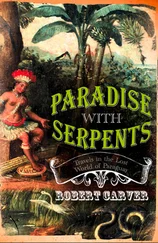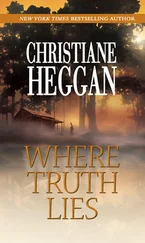The governing board of supervisors, for instance — of which Ingardia is the newest member — is a drowsy but powerful group of men and women who have been selling off county interests to developers for the better part of a century. The board’s names and faces change with the years, but their collective history is a discernible thing. A few years ago they were so enmeshed in their own concerns — like hobnobbing here at Tonello’s — that none of them took the time to understand that our near senile tax collector-treasurer was taking insane gambles with public money. Of course, he lost a lot of it — close to $2 billion — and the supervisors quickly denied responsibility for the problem. When they were done braying their innocence, they declared bankruptcy and immediately tried to dump the debt onto the very people whose money they had lost — through a tax hike. Newspapers reported that during those last days before the collapse, one of the supervisors was so distraught with the idea of losing her retirement that all she could talk about while the county sank into bankruptcy was her pension. I think that’s a wholly representative anecdote, if it’s true. One of the supervisors, in fact, quit his job and returned to be an officer on a local police force, where he had started public service years ago. He was the only one of the lot who earned my respect, though I’m sure my respect had little to do with his decision. When you meet these people face to face, as I have in the last few weeks, it’s hard to dislike them personally. But the best thing they and people like them could ever do for this embattled county would be to leave it.
Since Matthew’s death, I have not been eager to judge any man, even if I’m tempted to feel superior. But I do tend to get pissed off.
“You guys are slick, Peter,” I said.
“Just building communities for people to live in,” he said.
“Paying customers,” I noted.
“There’s nothing wrong with that, Terry.”
Maybe. But when I look around at this once serene place and see the cars stalled on the maze of freeways and the surface streets jammed with drivers trying to avoid the freeways and the smog hanging heavily over them all like a mood that can’t be willed away, and plans to build an airport large enough to handle a departure or arrival every minute, I wonder. I wonder about us and the way we’ve chosen to live. I wonder what it says about us, and what it will mean to the generations we create and leave behind. I’m not a pessimist, nor certainly apocalyptic, but I can’t help but surmise that we’ve all bought into something so demanding and consuming that we don’t even know what it is anymore. The race is frantic but the goal is forgotten. Our energy surges but our conscience has shut down. We are headless horsemen — lost, but making good time. Guys like Peter, they’re mainly along for the money, riding out the last few years of manifest destiny in pinstripe suits and loafers with fucking tassels. There at Tonello’s I could have gotten worked up about this, but I didn’t because my phone rang.
It was Johnny, and he was excited. I made my way outside with the phone to my ear and a sense of self-importance I couldn’t help myself from enjoying. The tequila was singing in my brain. I glanced over at Donna again, but she was talking to one of the executives who runs the Anaheim Angels baseball team. I imagined being in one of those private boxes with her, a bottle of champagne going and the Angels pounding Seattle.
Johnny was down in San Clemente, the southernmost city in the county, where The Horridus abducted his second girl. He said the next day’s San Clemente Shopper was running a for-sale ad for a late-model red Dodge van. Johnny had gotten the Shopper editor to let him have a sneak preview of the pages that would go to press that night. He talked to the woman who’d sold the ad — over the counter — to a nicely dressed, thirty-something man with glasses. Johnny made the call, posing as a Shopper delivery man who’d seen the ad early, and said he was really interested in the Dodge. The guy who answered said he could come by at seven tonight if he was serious. He was only taking cash. Johnny made the date.
“Clean shaven or beard?”
“Clean.”
“Did you sign up Louis?” I asked.
“Signed and sealed. We’ll meet at six-thirty. I hear you found someone for Amanda.”
“I’ve got him in my pocket and he feels good,” I said. “Guy was in a reptile house, telling some kid what Crotalus horridus was. Fits our description.”
“What do you want me to do, Terry, if this van salesman looks right? Rattle him or glide?”
“Get inside his house if you can. Get him talking. Stay cool. Pick his brains about the van. If he feels like talking, let him do it. No pressure, though. If he feels right, glide. If he looks good we’ll put a bumper-lock surveillance on him, and get to know him better. If he looks really right, make a deposit to hold the van for two or three days — as long as he’ll give you. Get his work number.”
I clicked off the phone. You’re out there somewhere, I thought: selling your house and your van, rubbing your hands over your newly shaven face, feeding your collection of snakes, looking for your next girl. You’re out there and I’m right here. But before you know how it happened, I’m going to be straight in your face. And I’m the last guy on earth you want to meet. Bet on it, friend.
I went in and got another drink and talked to a director of the South Coast Repertory Theater, which is one of the county’s true world-class institutions. When I try to converse with someone in the arts, I always realize how artless I am, how little I know about the world of creation and performance, the world of themes and ideas.
I ended up kind of glazed, had no idea whatsoever who Wally Shawn was, and let the director pick my brain about The Horridus. He asked me about the name, and trying to sound erudite, I told him it was a Latin designation for two reptiles, moloch and crotalus, both of which are followed by the species identifier — horridus.
“Which, of course, means rough, or bristled,” I said. “He wrote it on some evidence associated with his second abduction.”
He listened, then he said something interesting.
He said Moloch was a deity to whom the Israelites offered sacrifices of human children. He said that most Bible scholars maintain that Moloch was actually Yahweh himself, the God of the Jewish people, and that only later, shamed by their practice, they changed the name of that bloodthirsty god from Yahweh to Moloch.
“They rewrote history,” he said. “Odd to think that our Judeo-Christian tradition featured child sacrifice at one time.”
“I guess I would have changed the name of my god, too,” I said.
“Or asked him for a more humane program,” said the director. “When you catch him, will you castrate him?”
“The State of California frowns on that, but it’s been done. A castrated rapist can still rape, you know.”
“I didn’t know that.”
“It’s a crime of violence, not sex. At least that’s what the current thinking is. When a castrated rapist rapes again, I’d have to agree.”
“We live in some very challenging times, don’t we, Terry? Can I buy you another drink?”
“Thanks, but I’m just about to leave.”
I said my good-byes and looked one last time into the clear brown eyes of Donna Mason. My heart thumped in my chest and my stomach felt like I was going over a highway in a big fast car.
I let myself into the apartment ten minutes later. It’s a wonderful place, fifth floor, top level, on the other side of the metro district, just a stone’s throw from the nice theaters and expensive restaurants. There’s actually a bean field across from one side, a last vestige of our agrarian history. It’s also got a man-made stream that flows through the clusters of units — hokey, but pleasant. I opened the windows and a bottle of Cabernet, got out some glasses and wiped them shiny with a paper towel. I looked down over the city and felt inexcusably happy.
Читать дальше
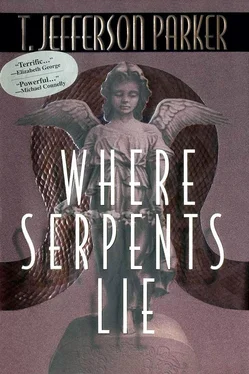


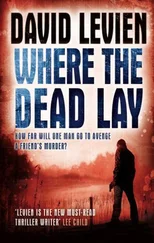
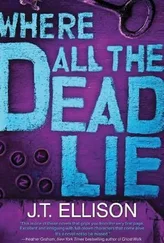

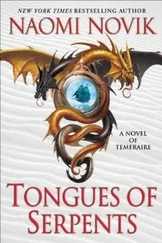

![Джеффри Дивер - Where the Evidence Lies [A Lincoln Rhyme Short Story]](/books/403782/dzheffri-diver-where-the-evidence-lies-a-lincoln-r-thumb.webp)

